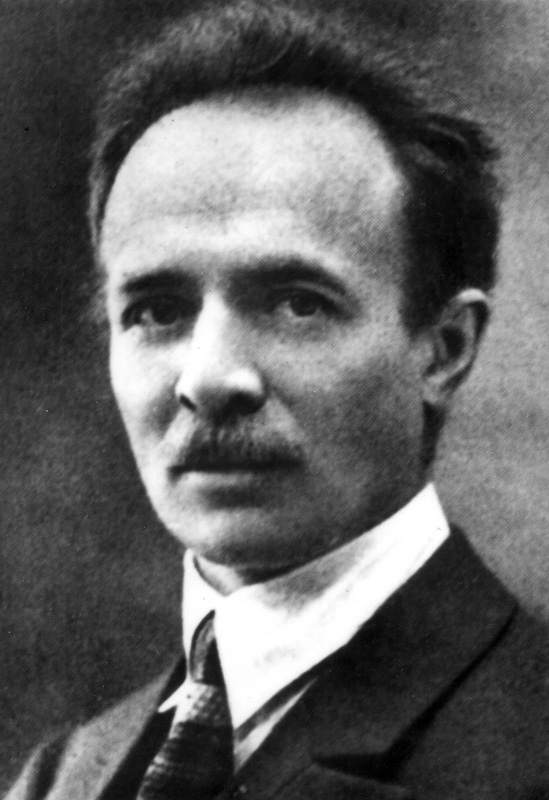Wilhelm Hoegner wurde 1887 als siebtes von 13 Kindern des Eisenbahnbeamten Michael Georg Hoegner und seiner Frau Therese in München geboren. Als guter Schüler erhielt er einen staatlich finanzierten „Freiplatz“ am Gymnasium in Burghausen. Das Abitur absolvierte er am Münchner Ludwigsgymnasium. Es folgte ein Jurastudium in Berlin, München und Erlangen, das Hoegner 1911 mit der Promotion abschloss. Im selben Jahr lernte er die Bankbeamtin Anna Woock kennen, die er 1918 heiratete und mit der er zwei Kinder hatte.
Bei Ausbruch des Ersten Weltkriegs meldete sich Hoegner freiwillig zum Militär, wurde aber wegen einer Herzschwäche abgelehnt. Nach ersten Versuchen, als Angestellter beruflich Fuß zu fassen, entschloss er sich, in den Staatsdienst einzutreten, und wurde 1914 als Rechtspraktikant angestellt. Das magere Gehalt besserte er mit Nachhilfeunterricht und Schreibarbeiten für einen Gefangenen-Hilfsverein auf. Seiner Zulassung als Rechtsanwalt 1918 folgte eine beachtliche juristische Karriere. In den Jahren 1920 bis 1933 stieg er vom Dritten Staatsanwalt zum Amtsrichter (1925), zum Ersten Staatsanwalt (1929) und bis zum Landgerichtsrat (Januar 1933) auf.
Parallel zum beruflichen Erfolg verlief Hoegners Karriere als SPD-Politiker. Seine Außenseiterrolle unter den privilegierten Mitschüler*innen ebenso wie die Erfahrungen in der Berufswelt hatten früh seinen Gerechtigkeitssinn geschärft: Schon 1907, als Abiturient, hatte er sich der Sozialdemokratie angeboten, wurde aber vom damaligen Münchner Ortsvereinsvorsitzenden wegen seiner Jugend und Unerfahrenheit auf später vertröstet. Zwölf Jahre danach trat er schließlich als Rechtsanwalt in die SPD ein, wurde schnell Sekretär des Ortsvereins München, 1924 Landtags- und 1930 Reichstagsabgeordneter.
Neben kirchen-, schul-, kultur- und rechtspolitischen Fragen sah Hoegner seine wichtigste politische Aufgabe im Kampf gegen den aufkommenden Nationalsozialismus. 1924 wurde er Vorsitzender eines von ihm initiierten Untersuchungsausschusses, der die Hintergründe von Hitlers Umsturzversuch im November 1923 und die Verstrickung von Mitgliedern der bayerischen Verwaltung, Justiz und Polizei aufklären sollte. Die brisanten Erkenntnisse des Ausschusses wurden allerdings ignoriert und blieben ohne strafrechtliche Folgen für die Beteiligten. Dies veranlasste den Landesausschuss der bayerischen SPD 1928, diesen Justizskandal mit der Schrift „Hitler und Kahr. Die bayerischen Napoleonsgrößen von 1923” öffentlich zu machen. Noch heute ist der von Hoegner verfasste Untersuchungsbericht eine wertvolle Quelle zu den Ereignissen im Umfeld des Hitlerputsches.
In der Weimarer Republik avancierte Hoegner mit seinen mutigen Stellungnahmen im Kampf gegen Hitler zu einem Intimfeind der Nationalsozialisten in Bayern. Nach deren Machtübernahme 1933 floh der passionierte Bergwanderer deshalb auf abenteuerlichen Wegen über das Karwendelgebirge nach Tirol, wo er kurz als Sekretär der Sozialdemokratischen Partei Österreichs arbeitete. Schon im Februar 1934 zog er aber in die sicherere Schweiz nach Basel um. Im Exil waren seine beruflichen und politischen Möglichkeiten stark eingeschränkt. Unter prekären finanziellen Bedingungen arbeitete er als Schriftsteller und Übersetzer. Zugleich skizzierte er zusammen mit anderen Emigranten, darunter dem Staatsrechtler Hans Nawiasky, erste Entwürfe für eine demokratische Verfassung in einem föderalistischen Deutschland.
Unmittelbar nach Kriegsende, im Mai 1945, kehrte Hoegner nach München zurück. Die amerikanische Militärregierung berief ihn zunächst in die Justizverwaltung und ernannte ihn im September 1945 als Nachfolger Fritz Schäffers zum Bayerischen Ministerpräsidenten, zusätzlich übernahm er das Amt des Justizministers. In dieser Funktion war er im Oktober 1946 einer der zwei deutschen Vertreter bei der Hinrichtung der im Nürnberger Hauptkriegsverbrecherprozess zum Tode verurteilten Angeklagten. Anschließend wurde Hoegner Mitglied im Länderrat, 1946 dann Vorsitzender des Vorbereitenden Verfassungsausschusses und Mitglied der Verfassungsgebenden Landesversammlung in Bayern. Weite Teile der Bayerischen Verfassung tragen Hoegners Handschrift, darunter die Gleichstellung von Bekenntnis- und Gemeinschaftsschule, die starke gemeindliche Selbstverwaltung und die Teilhabe aller am „Genuß der Naturschönheiten”. Hoegner gilt daher heute als „Vater” der Bayerischen Verfassung.
Bei der ersten Landtagswahl am 1.12.1946 siegte die CSU, und Hans Ehard löste Hoegner als Ministerpräsident ab. Hoegner blieb Justizminister und stellvertretender Ministerpräsident, bis die SPD gegen seinen Widerstand 1947 die Koalition verließ, woraufhin er auch als Vorsitzender der bayerischen SPD zurücktrat. Danach wirkte er als Senatspräsident am Oberlandesgericht, als Generalstaatsanwalt und ab 1950 als Innenminister im dritten Kabinett Hans Ehard. Von November 1954 bis 1957 regierte Hoegner an der Spitze einer Koalition aus vier Parteien erneut als Ministerpräsident. Bis 1970 blieb er als Mandatsträger politisch aktiv, sein letztes Amt war das des stellvertretenden Präsidenten des Bayerischen Landtags.
Wilhelm Hoegner engagierte sich zeitlebens im Kampf gegen Rechtsextremismus, Antisemitismus und Intoleranz. Er ist Autor mehrerer Bücher. 1977 veröffentlichte er seine Erinnerungen unter dem Titel „Flucht vor Hitler“. Wilhelm Hoegner starb 1980 in seiner Heimatstadt München, die ihn bereits 1957 (wie danach auch die Städte Burghausen und Vohburg) zum Ehrenbürger ernannt hatte.


